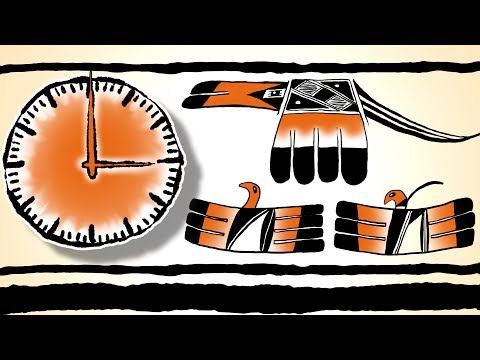We’ve got a long wait ahead of us.
Question: What does “ahead of” mean here?
I looked it up in the dictionary. The definition of “ahead” is in the future. But I still can’t figure it out.
Another way to say that is “we have to wait for a long time”?
Thank you!!
If you put something “behind” you, it is a thing of the past.
“The past is behind us, the future is ahead. Let us all strive to make the future better and brighter than the past ever was.”
In the picture shown in the article, “Soldier shaking hands with worker holding sledgehammer.” I don’t know what kind of message the painter wanted to convey.
Sometimes we need to conserve the past!
Maybe you need to become a Conservative?
Or maybe he should conserve his political stance?
In your example, “ahead of” means “in front of.”
So:
The man is ahead of us in line at Disney World = The man is front of us in the line at Disney World
With the Trump presidency, there are interesting times ahead = There are interesting times [to come, in front of us, in the future, etc.]
Umm…no, no…I kind of like the idea of Yutaka-the-Ultra-Conservative. There is no zeal quite like the glowing zeal of a new convert! He could be a veritable shock-trooper! Maybe he could even be part of the first banzai-charge against the serried ranks of soft-leftists that have infected the collective body politic of his nation ever since…er well…ever since 1945…?
Maybe it’s time to rediscover a sense of fanatical loyalty to the Emperor?
Maybe it’s time for Japan to (re)grow some political cojones and to become a little more aggressive and assertive?
Maybe Japan needs Yutaka?
天皇陛下万歳
![]()
Or maybe he should conserve his political stance?
You don’t think that a highly cultured Japanese language enthusiast should become a rightwing political nut like…well…me?
Surely some mistake? ![]()
This is a very interesting topic. In most modern “Western” languages there is a widespread metaphor that compares the future with what’s in front and the past with what’s behind. In Chinese, OP’s mother tongue, the usual metaphor is for the past to be on top and the future on bottom: Shang vs Xia. I suppose part of the confusion comes from this fact.
Other languages have other ways of expressing this relationship. I love the idea that seemed to have been preferred by ancient Greece and other cultures: you walk back into the future, so that behind is the future and ahead you have the past. It makes total sense because you can “see”, i.e., you know the past but you can’t see the future, which is behind. The present you can only kind of glance at it askance as you pass.
NativLang has a nice video with more info on language and time, with particular attention to the (historically relevant) Hopi example:
“…In Chinese, OP’s mother tongue the usual metaphore is for the past to be on top and the future on bottom…”
Interesting. I never knew that! It just goes to show how cultural differences like this can lead to misunderstandings on seemingly simple and obvious points.
To me, it would almost seem like completely natural logic that the future is “ahead” or “in front” of us - conceptually speaking.
I must confess that, when I first read the OP-er’s question, I couldn’t see why the answer wasn’t perfectly obvious! :-0
To me, it would almost seem like completely natural logic that the future is “ahead” or “in front” of us
Yes, that’s what makes this subject fascinating.
A small self-correction: I haven’t been able to confirm that the backwards-future conceptiualization was used by ancient Greek. I may have confused it with the Sumerian/Babylonian. They did think about it that way, and it’s not the only example. This is a paper about it:
And this one suggests that your mental image may vary when you walk back:
In English, old people like me occasionally say that we have a great future stretching out behind us, which is a joke underlying which is a tinge of desperation …
You have to be patient, Jay. I’m sure some day we’ll all be just like you and the world will be a paradise but it may take a while (sigh!)
A side note: Conservative means different things in different places. The group you linked bases itself on an American concept of conservatism (small government, deregulation etc.) that has never really existed in domestic Japanese politics. Check out Nippon Kaigi for the 天皇陛下万歳 types ![]()
I agree. If our eyes were attached to our upper neck, “ahead of us” might cause some confusions. Which is moving forward and which is moving backward? This applies also to the dichotomy of right and left. Right-wingers in a country could be placed at an unexpected position in another country.
